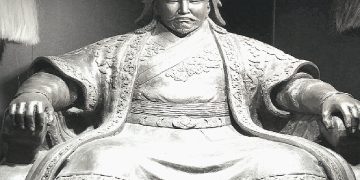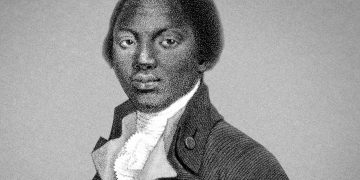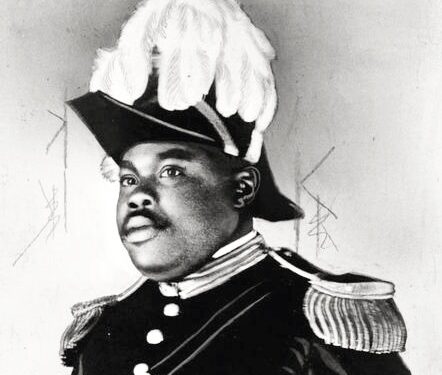Marcus Garvey: A Visionary Leader of the African Diaspora
Marcus Garvey (1887-1940) was a Jamaican political leader, publisher, journalist, and formidable advocate for Black nationalism and pan-Africanism. His life and work significantly impacted the fight for civil rights, self-determination, and empowerment within the African diaspora, making him one of the most influential figures in early 20th-century history.
Early Life and Education
Born on August 17, 1887, in St. Ann’s Bay, Jamaica, Garvey was the youngest of eleven children. His early education instilled in him a sense of pride in his African heritage. At a young age, he began to develop his skills as a writer and public speaker. In 1907, he moved to Kingston, where he became involved in various political and social movements, laying the groundwork for his future endeavors.
The Universal Negro Improvement Association
In 1914, Garvey founded the Universal Negro Improvement Association (UNIA) in Jamaica. The UNIA aimed to unite people of African descent globally, advocating for economic independence and the establishment of a distinct Black identity. Garvey’s charisma and oratory skills attracted thousands of followers, and the movement quickly gained momentum.
In 1916, Garvey moved to the United States, where he expanded the UNIA. He organized conventions and rallies, emphasizing self-reliance and the importance of education and entrepreneurship. His message resonated with many African Americans, who were disillusioned by the ongoing racism and oppression in society. You may also like
The Back-to-Africa Movement
One of Garvey’s most notable initiatives was the Back-to-Africa movement, which encouraged people of African descent to return to their ancestral homeland. He believed that the establishment of a strong, independent African nation was essential for the advancement of Black people worldwide. Garvey founded the Black Star Line, a shipping company intended to facilitate this migration, aiming to create a sense of global unity and cultural pride among people of African descent.
Controversies and Challenges
Garvey’s methods were not without controversy. His emphasis on Black nationalism and separation garnered criticism from other civil rights leaders, including W.E.B. Du Bois, who advocated for integration and cooperation with white society. Additionally, Garvey faced legal troubles, including a conviction for mail fraud related to the Black Star Line, which led to his imprisonment in 1922. After serving time, he was deported to Jamaica in 1927.
Legacy and Impact
Despite his challenges, Garvey’s influence did not wane. He continued to advocate for Black empowerment and consciousness until his death in 1940. His ideas laid the groundwork for future civil rights movements and inspired generations of activists, including Malcolm X and the Black Power movement of the 1960s.
Garvey’s legacy is also evident in the establishment of various organizations dedicated to Black pride and self-determination. His emphasis on education, economic independence, and cultural identity continues to resonate today, making him a symbol of resilience and hope for many within the African diaspora.
Marcus Garvey’s contributions and philosophies are rich and multifaceted, reflecting his deep commitment to the empowerment of people of African descent and his vision for a united global community. Here are some additional aspects of his life and legacy:
Garvey’s Ideology
1. Black Nationalism: Garvey was a staunch advocate for Black nationalism, which sought to promote a sense of identity and pride among people of African descent. He believed that Black people should have their own institutions, businesses, and governments, separate from white society, to achieve true independence and self-determination. join our tech community and be part or the digital revolution!
2. Pan-Africanism: Garvey’s vision extended beyond national borders; he was a proponent of pan-Africanism, the idea that all people of African descent around the world share a common heritage and should unite in the struggle against colonialism and oppression. He organized the First International Convention of Negro Peoples of the World in 1920, which brought together delegates from various countries to discuss issues facing the African diaspora.
3. Cultural Pride: He emphasized the importance of cultural pride and self-love, encouraging individuals to recognize the value of their African heritage. Through his writings and speeches, he sought to instill a sense of dignity and respect for Black identity.
Key Achievements
1. The Negro World: Garvey launched a newspaper called “The Negro World” in 1918, which served as a platform for the UNIA’s messages and a voice for the Black community. It covered a variety of topics, including politics, culture, and economics, and helped shape public opinion on issues affecting African Americans and people of African descent globally.
2. Black Star Line: The Black Star Line was founded to facilitate trade and travel between African Americans and Africa. Although the shipping company faced numerous challenges, including financial mismanagement and legal troubles, it symbolized Garvey’s ambition to reconnect the African diaspora with its roots and promote economic independence.
3. Mass Mobilization: Under Garvey’s leadership, the UNIA grew to become one of the largest mass movements in Black history, boasting millions of members worldwide. His ability to mobilize people through rallies, parades, and conventions showcased his exceptional leadership skills and the resonance of his message.
Challenges and Decline
The rise of the UNIA also attracted opposition from various quarters, including the federal government, which viewed Garvey as a potential threat. His association with the Black Star Line and his outspoken views on race and nationalism drew scrutiny from law enforcement agencies. In 1922, he was convicted of mail fraud, a charge many believed was politically motivated, leading to his imprisonment and eventual deportation.
After his deportation to Jamaica, Garvey continued to advocate for Black empowerment, but the UNIA’s influence began to wane. Various factions emerged, and internal conflicts weakened the organization. Despite these challenges, Garvey remained an influential figure in Jamaica and continued to speak about issues affecting the African diaspora until his death in 1940.
Global Influence
Garvey’s influence extended beyond the United States and Jamaica. His ideas inspired movements across the Caribbean, Africa, and beyond. Leaders such as Kwame Nkrumah in Ghana and Julius Nyerere in Tanzania drew from Garvey’s vision of pan-Africanism and self-determination.
In the United States, Garvey’s legacy lived on through the civil rights movements of the mid-20th century. His emphasis on Black pride and self-sufficiency influenced figures like Malcolm X, who echoed Garvey’s calls for racial pride and empowerment. Join our fitness community and achieve your goals!
Commemoration
In recognition of his contributions, Garvey has been honored posthumously in various ways. Statues and memorials have been erected in his honor, and his birthday, August 17, is celebrated in many places as Marcus Garvey Day. His writings and speeches continue to be studied and celebrated for their profound impact on the fight for racial justice and equality.
Marcus Garvey remains a towering figure in the history of the African diaspora. His unwavering commitment to Black nationalism, pan-Africanism, and cultural pride laid the groundwork for future generations of activists and thinkers. Garvey’s vision of a united and empowered Black community continues to inspire movements for justice and equality around the world, reminding us of the enduring importance of self-determination and collective action in the struggle against oppression.
Marcus Garvey was a pioneering figure whose vision for a united and empowered Black community transcended borders and time. His contributions to the fight for civil rights and social justice have left an indelible mark on history, inspiring countless individuals to embrace their heritage and strive for equality and justice. As we reflect on his life, Garvey’s message of self-reliance, pride, and unity remains a guiding light in the ongoing struggle for freedom and dignity for all people of African descent.












